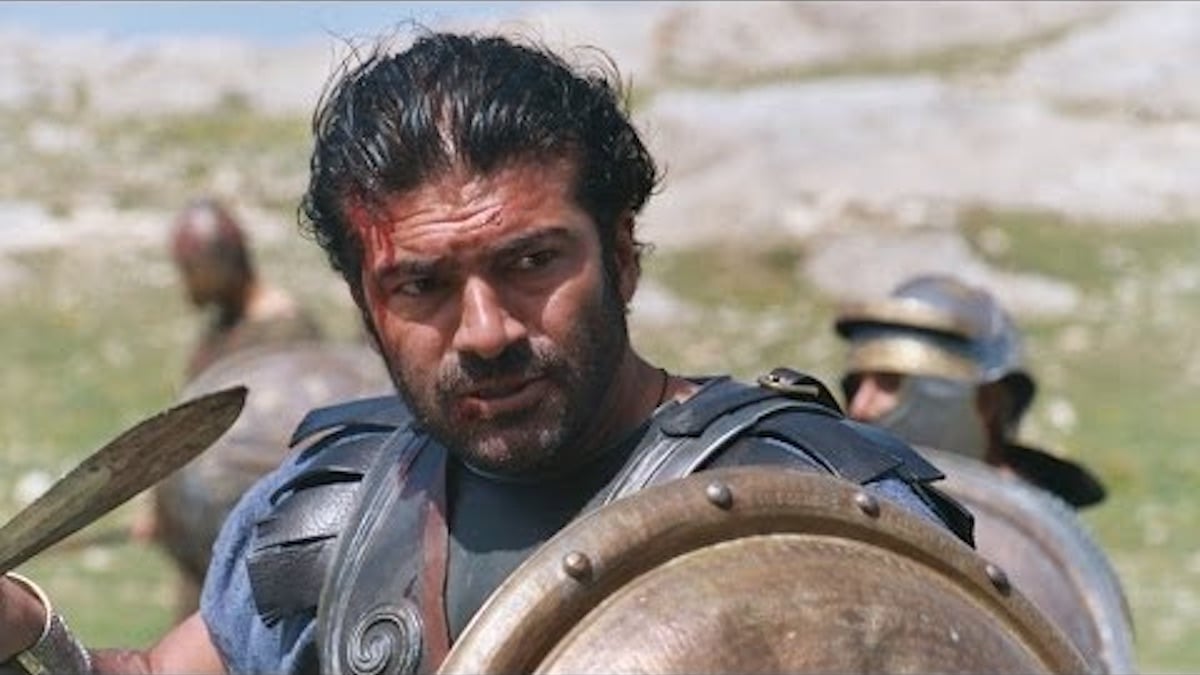
If ever there was testimony to the homely that the truth is stranger than fiction, the story of Carthaginian General Hannibal Barca is it.
Was he a renegade soldier obsessed with his father’s death or was he a visionary freedom fighter who died for his country? What we know is that he marched a hundred elephants across the Alps only to have them die on Roman soil before he executed one of the greatest battle victories in our history. We also know that although he floated like a butterfly and stung like a bee, when the Romans learned they didn’t have to play his game and fought him with politics instead of swords, the handwriting was on the scroll. Hannibal was skewered on his own tusks.
A story of more classic tragedy has never been told. Hannibal is born to a famous general in Carthage in 247 BC. His father raises him to be a warrior from age 8 and forces him to take a deadly vow to fight the Romans to his death. The city of Carthage was the capital of a trading empire that competed, but co-existed with Rome for centuries. Located at the present site of Tunis, Carthage controlled the northern edge of Africa from Tunis to the Straight of Gibraltar and conducted vigorous trade across the Mediterranean.
The lifetimes of the father and son generals span the first and second Punic wars from 264 to 201 BC. Hannibal’s father had fought unsuccessfully as Roman legions took Sicily, Sardinia and Corsica in the First Punic War. He was disgraced and humiliated and transferred this hatred of Romans to his son. He also made inroads across the straight of Gibraltar to set up a power base in the city he named New Carthage (modern day Cartagena). From here he fought rebel tribes and built up his army for his dreamed-of assault on Rome itself, all without support from the prosperous merchants of his homeland Carthage. But that final battle was not to be. He was killed in front of his son Hannibal by rebel tribesmen. Although the father died, the burning hatred lived on in the son.
The story of Hannibal fascinates because it plays out the hopes, dreams and curses on mankind on many levels. It represents the curse of hatred passed from father to son. The rich and greedy merchants turned their backs on both father and son who were fighting to protect then from Rome. Or were they? Perhaps they were fighting out of anger at the lack of respect their countrymen felt for them. Perhaps the elder Barca’s defeat in the First Punic War was a dishonor that could only be atoned for with death.
Like father, like son, Hannibal fought without support or recognition from Carthage. He strengthened his father’s stronghold in Spain and finally launched his attack on Rome with the historic march of the elephants across the alps. Losing nearly half his army in the process, he made it to Roman soil only to see the elephants die there of unknown causes. But the elephants turned out to be phantasmagoria anyway as he crushed the Romans in a battle that is still studied by the military to this day. At the Roman city of Cannae, outnumbered nearly two to one and fighting the Legions on their own soil he crushed the Roan army with a classic encircling movement. His mercenary army hacked the Romans to pieces in hand to hand combat, killing 50,000 in that day.
But his success would go all but unacknowledged by his homeland. The wealthy traders in Carthage refused to give him what he needed most: honor and recognition. Praised in his presence, he was cast as a renegade to Rome as the merchants hedged their bets lest he fail. Lacking support from home, Hannibal was left to rot in Italy as Rome learned his tricks and simply out-waited him. Carthage betrayed him and Hannibal fled as the legions burned Carthage.
Did Hannibal see the Roman threat that would eventually burn the glorious city to the ground? Or did he cause the Roman threat himself with his renegade mercenary troops? Was he a visionary, or simply insane with hatred? Was he a patriot or a war-mongering brute? We will never know for sure because the Romans were so afraid of a successor to Hannibal that they destroyed all records of his exploits before they burnt Carthage to ground to erase all symbols of the hero. Only the secret records of a Roman historian saved the story from complete oblivion. See it retold on October 30, 2005 on the National Geographic Channel.
Visit the official site for further information.